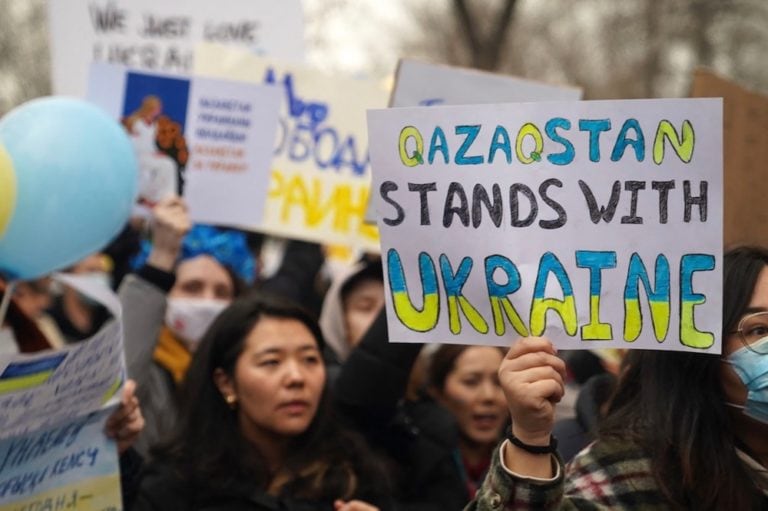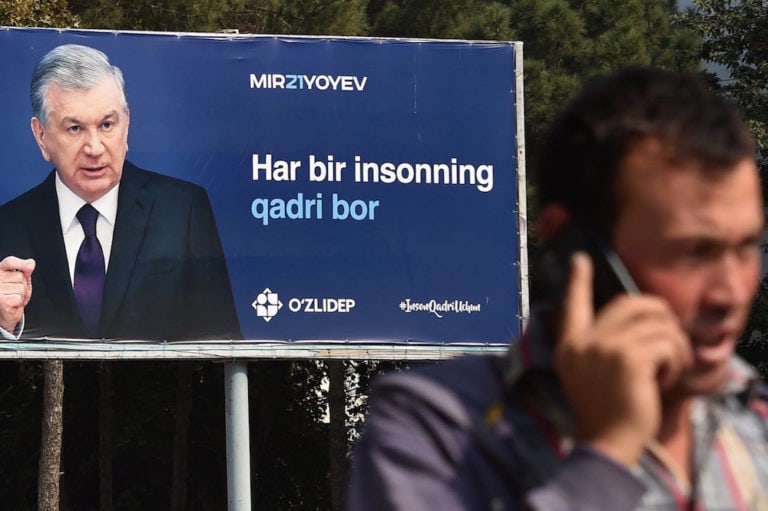(Freedom House/IFEX) – The following is a 10 May 2004 Freedom House press release: CENTRAL ASIAN GOVERNMENTS MUST LIFT RESTRICTIONS ON PRESS FREEDOM May 10, 2004, NEW YORK – The continuing infringement on media freedom in Central Asia is one of the major human rights abuses plaguing the region, Freedom House said today. According to […]
(Freedom House/IFEX) – The following is a 10 May 2004 Freedom House press release:
CENTRAL ASIAN GOVERNMENTS MUST LIFT RESTRICTIONS ON PRESS FREEDOM
May 10, 2004, NEW YORK – The continuing infringement on media freedom in Central Asia is one of the major human rights abuses plaguing the region, Freedom House said today.
According to a recently-released Freedom House report, Freedom of the Press 2004: A Global Survey of Media Independence, the five Central Asian republics are all rated Not Free.
“While the constitutions in these countries provide for freedom of speech and freedom of the press, in reality the governments place severe restrictions on these rights,” said Freedom House Executive Director Jennifer Windsor. “Journalists and editors practice self-censorship for fear of criminal prosecutions. Uzbekistan, for example, formally ended its press censorship in 2002, but amendments to the media law limit criticism of the President and hold editors and publishers responsible for article content in their publications,” she said.
Central Asian governments exert near total control over media outlets, with the government of Turkmenistan the most extreme example.
Turkmenistan is rated as one of the five worst performers in the Freedom House survey, and this year was ranked 190th out of 192 countries and one territory.
In Kazakhstan, President Nazarbaev recently vetoed a restrictive media law. However, individuals close to the president’s family continue to own most of the country’s private media outlets. Additionally, the government periodically blocks access to several opposition websites.
Over the course of the past decade, press freedom has declined in all of the Central Asian countries, with the exception of Tajikistan. Kazakhstan and Kyrgyzstan were rated as Partly Free a decade ago in Freedom House’s Annual Survey of Press Freedom. Now both countries are rated as Not Free.
Lawsuits against media professionals and outlets remain a common means of attempting to silence any criticism of the government in the region. In Kyrgyzstan, at least 11 lawsuits were filed in reaction to critical press coverage in 2003, and publications and individual journalists were ordered to pay fines of up to $12,000, mostly to offended government officials. In Kazakhstan, independent journalist Sergei Duvanov was tried and convicted on dubious charges for alleged rape after publishing articles condemning corruption in the Kazakh government. In Uzbekistan, four prominent journalists are serving lengthy prison sentences for writing materials critical of the government.
In Tajikistan, recently adopted regulations for broadcast media threaten to arbitrarily close radio and TV stations whose coverage is deemed critical of government officials. The state printing press refused in November 2003 to publish the independent newspaper Ruzi Nav because of its critical reporting on government corruption. The government, citing a lack of technical equipment and qualified personnel, also denied a TV broadcasting license to Asia-Plus.
Independent journalists in Central Asia continue to be vulnerable to harassment, intimidation, and physical violence. In 2003, at least three attacks–one of which was fatal–on independent journalists and editors in Kyrgyzstan were allegedly related to their independent reporting.
“With parliamentary elections scheduled to begin in the fall in many of Central Asian states, freedom of the media is imperative to guarantee free and fair balloting,” Ms. Windsor said. “Media freedom is crucial to the development of democratic societies. The restrictions that the Central Asian governments continue to place on media freedom pose a significant obstacle to this development and therefore must be lifted,” said Ms. Windsor. “Independent journalists must be able to work without fear of harassment or intimidation.”
Freedom House’s Freedom in the World report is available on-line at: http://www.freedomhouse.org/research/index.htm
Freedom House’s Press Freedom Survey is available on-line at: http://www.freedomhouse.org/research/pressurvey.htm
Freedom House’s Countries at the Crossroads Survey, which examines democratic governance and corruption, is available on-line at: http://www.freedomhouse.org/research/crossroads/cac.htm


